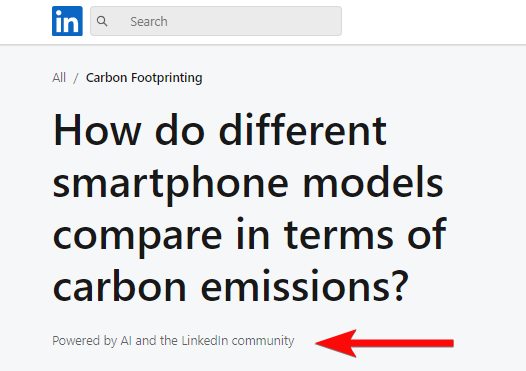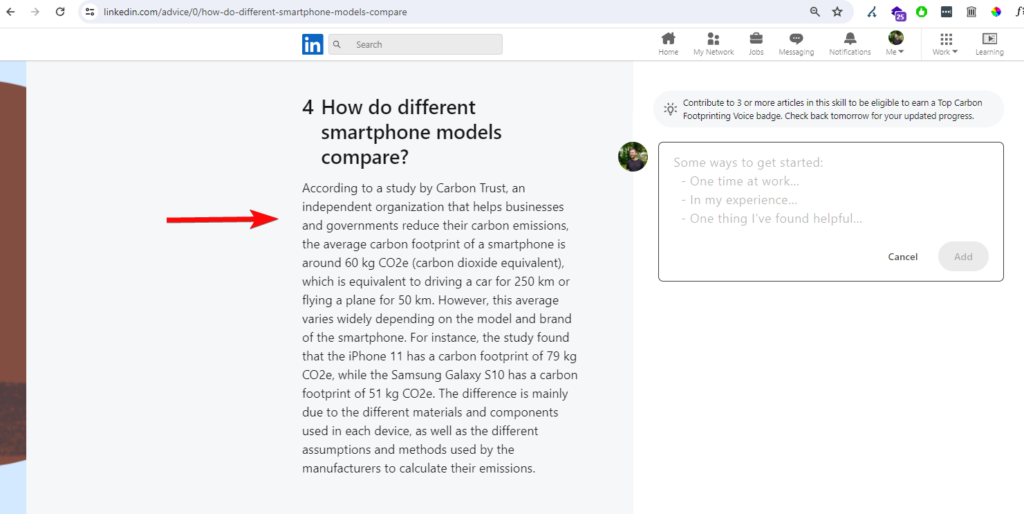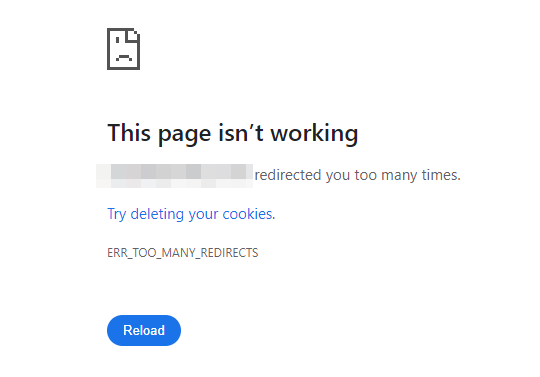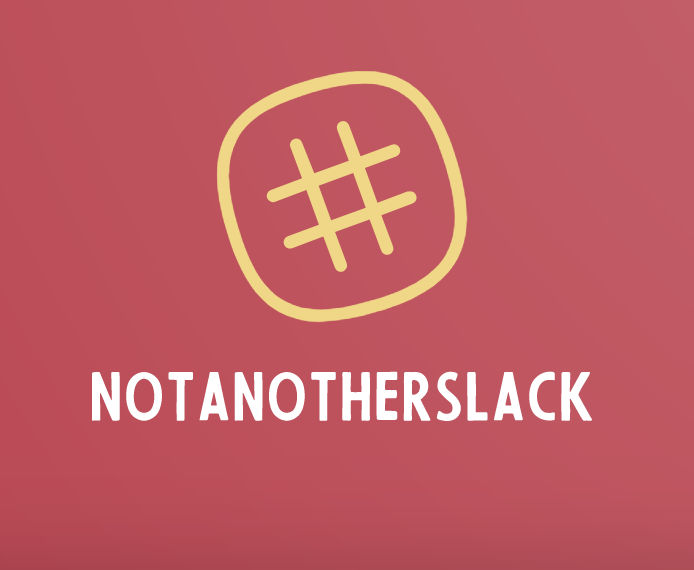I had been trying to research the carbon emissions involved in the manufacturing of a smart phone when I stumbled upon an interesting LinkedIn article.
To anyone who has not worked in this space before, it is incredibly different to find accurate, verifiable information on anything related to carbon emissions. There have been a lot of misinformed studies, and an equal amount of media hyperbole which often takes things very much out of context.
I'd learned that it's important that when covering this topic you find quality references to back up any facts and figures shared.
So when I found a featured snippet being pulled from a LinkedIn AI-generated article for the query "carbon emissions phone manufacturing", I was a bit sceptical.
The featured snippet itself contained a section of text from the LinkedIn article which referenced a study carried out by an organisation called the Carbon Trust, and it said that "the average carbon footprint of a smartphone is around 60 kg CO2e (carbon dioxide equivalent), which is equivalent to driving a car for 250 km or flying a plane for 50 km."
I'd later learn no such study by the Carbon Trust existed.
The article - How do different smartphone models compare in terms of carbon emissions?
The article on LinkedIn was fully AI generated - it existed as part of their huge new collection of AI content. You can tell this because the article has the following tagline below the heading:
Powered by AI and the LinkedIn community

How do different smartphone models compare in terms of carbon emissions? - from the LinkedIn article
LinkedIn started rolling these articles out several months ago, and all signs show they've been a big success. Not only have Google been ranking these pages highly within the SERPS, but as far as I can tell plenty of LinkedIn users have been quick to leave quotes within those articles.
Within this article whilst there was no human-added content, there was a section that talked about a study that the Carbon Trust had carried out - this was the part of the article that Google was showing as a featured snippet.

The article with the featured study highlighted
I thought it was quite convenient to me that this study existed - and it was great that Carbon Trust had published it. I knew that they were an authoriative and independent voice in this space. This is how they describe themselves on their website:
Our mission is to accelerate the move to a decarbonised future. Climate pioneers for more than 20 years, we partner with leading businesses, governments and financial institutions to accelerate their route to Net Zero. We are your expert guide to turn your climate ambition into impact.
Confirmation of the Fabricated Carbon Trust Study
Sadly LinkedIn doesn't seem to cite or reference any of the figures it mentions within their AI articles - which should be a huge red flag to anyone who is looking for trustworthy data on the web. So I thought I'd look for it on the Carbon Trust website instead.
Despite all my best intents, I couldn't find a reference of this study anywhere.
After a lot more fruitless searching, I decided to reach out directly to Carbon Trust to see if they can help me to find the study so I can cite it directly in my own piece.
After some back-and-forth with their team, it became apparent that no such study existed.
It seems that LinkedIn's AI tool had somehow fabricated the entire study. Which meant that not only had they published incorrect information, but Google was also ranking data from a ficticious study within a featured snippet.
With LinkedIn rolling out thousands of AI generated articles, it makes you wonder how much of what they've published is accurate, and whether there are many more cases like this one?
For anyone that's wondering btw - the carbon emissions from mobile phone production is believed to be 60kg (more than 300x the weight of the phone itself!) which to be fair is the same figure as LinkedIn state. Thanks to author and digital sustainability expert Gerry McGovern for sharing that information with me.



